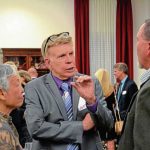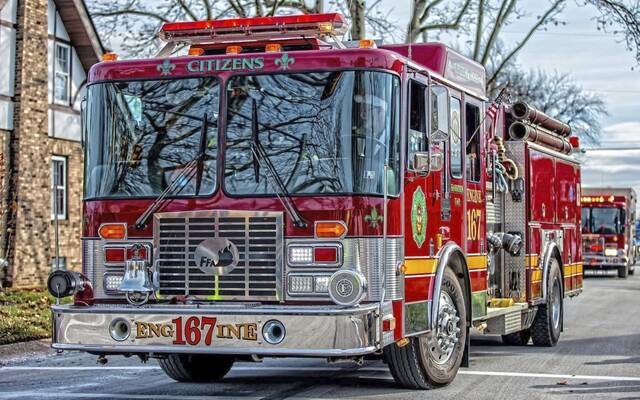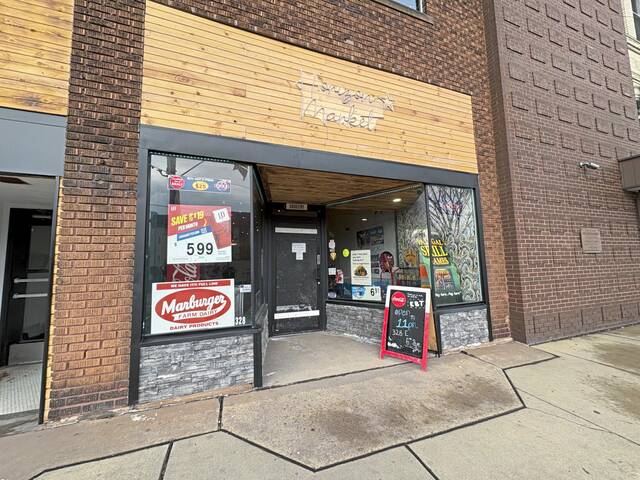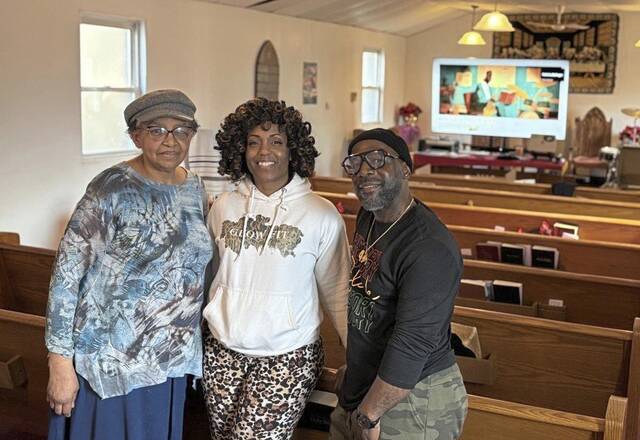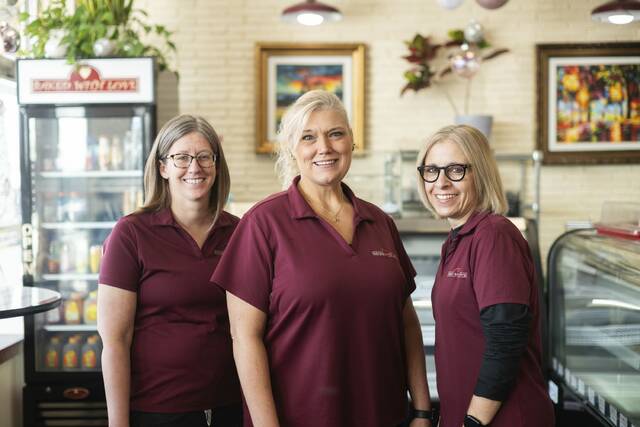From his birth in a Brackenridge garage, to growing up in Harrison, to becoming a business owner in Southern California, Richard Staley says the success he’s found in life has been part luck, part hard work.
“At so many points along the way, things could have turned ugly very quickly,” said Staley, 81, who makes his home primarily in Pasadena Island, Fla., with Jayne Goetze, his partner of 12 years. “Being in business for yourself is not for everybody. You have to have somewhat of an aggressive nature, which is helpful. And I feel you have to understand what you’re good at. And what you’re good at has to be able to make money in the end.”
Staley recently gave $4 million to Grove City College, from which he graduated in 1962.
It’s the largest unrestricted gift in the Mercer County college’s 145-year history.
It’s not the first time Staley has supported his alma mater financially. In 2014, he gave $1 million, of which $750,000 went to a laboratory in the college’s then-new science, technology, engineering and mathematics building and $250,000 to its Center for Entrepreneurship & Innovation. The lab and an entrepreneurship lecture series were named for him.
Staley earned a degree in chemical engineering from Grove City College. After working for others in Illinois for 15 years, he founded two companies in Southern California.
Flavor House makes flavors from hydrolyzed vegetable proteins and yeast extract for the food industry. Staley Equipment Corp. services the food, pharmaceutical, cosmetic and plastic industries.
Of the $4 million Staley gave to Grove City College, just under $3 million came from the sale of 63 acres he bought as an investment in the high desert in the Los Angeles area for $180,000 about 20 years ago. Its value increased after recently being approved for growing marijuana, Staley said.
Staley gave the land to the college in 2019, and the college sold it in 2020, Grove City College spokesman Nick Hildebrand said. Staley said the buyer deals in the sale of salvaged cars.
“It sounded like Grove City College could use the money more than I needed it,” Staley said. “If you wait long enough, good things come along.”
‘I am humbled’
In recognition of Staley’s latest gift, the college’s board of trustees approved renaming its Hall of Arts and Letters, a classroom building, in his honor. It will be rededicated as Staley Hall of Arts & Letters at the 2021 commencement in May, which Staley plans to attend.
“I am humbled,” he said.
Unrestricted gifts are used to cover unanticipated expenses, such as those related to the covid pandemic, and direct money to where it is most needed, Hildebrand said.
With an annual budget of about $80 million, the Christian liberal arts and sciences college established in 1876 has an enrollment of about 2,300 with 155 full-time faculty. It does not accept federal funds.
“These unrestricted gifts are also key to the college’s ability to offer scholarships, which help maintain its commitment to affordability,” Hildebrand said.
Staley decided to be a chemical engineer when he was in ninth grade at the former Har-Brack High School. Upon graduating in 1958, he chose Grove City College for its science programs and was taken by its picturesque campus.
“It rounded out my education,” he said. “It allowed me to take courses in chemical engineering, to be able to work with different processing equipment. It gave me a feel for what I would be doing in the future.”
But early in Staley’s education, he said, “I was a terrible student. I flunked first grade. I had no interest in school. This went on until I was in about fifth grade.
“What changed my attitude was one of the teachers came into our class and asked if anybody would be interested in making a little electric motor. That sounded interesting to me. It actually changed my outlook on life. It was so fascinating.
“From that, I went into crystal sets, making transmitters, chemistry sets, Erector Sets,” he said. “It seemed like science was so exciting. I took all the science classes I could get in high school.”
Out of school, Staley would buy cars, fix them and sell them to make money. He started a car club. As its president, he remembers raffling turkeys to get money.
Entrepreneurial spirit
After graduating from college, and before his move to the Los Angeles area in 1977, Staley spent 15 years in Illinois. He said he went to a job interview with a milling company in Decatur primarily for the thrill of his first trip on a plane.
He accepted a management position with the same company in Chicago five years later.
“It was a run-down building that was originally owned by Al Capone,” he said. “The equipment was so run-down that I had to spend a couple years replacing it, which was perfect for me. It allowed me to interact with used equipment companies and purchasing of company equipment for the refitting that needed to take place.”
That’s when he started thinking of going into business for himself. Comparing himself to those around him with higher degrees, he knew he’d have to do something to advance.
“I started realizing that I had just built a company virtually over again,” he said. “I felt comfortable doing this. It was an excellent additional education besides my college.”
Staley thinks not enough young people consider going into business for themselves because they’re not exposed to it, and he finds many later in their lives regretting not doing so. It’s one of the reasons he supported Grove City College’s entrepreneurship speaker series.
“I was thinking if the students at Grove City would actually be initiated into this type of thinking, it would push a lot of potential entrepreneurs into going into their own business,” he said.
Deep roots
His father, Ernest Staley, was an engineer for Alcoa for more than 30 years. Staley’s father built the home in Brackenridge where Staley was born, and the house in Harrison where he grew up.
His family’s roots in the area run deep, with the Staley family arriving in Bakerstown in the early 1800s and coming to Tarentum soon after. His ancestors worked the oil fields, owned land and operated businesses. Many in the family were doctors and pharmacists.
Staley said his father was an excellent engineer but disappointed with working at Alcoa. After retiring from Alcoa, he worked for Allegheny Ludlum for several years.
“He should have been in business for himself, too,” he said.
One of Staley’s two brothers is deceased. His sister, Carol Capoccioni, 80, lives in the house their father built in Harrison. She bought it from their parents around the same time it was moved across Little Bull Creek to Meadow Street to make way for Route 28.
Capoccioni said she was closer to Richard than her other brothers because they were so close in age.
“He was my brother and my best friend at the time,” she said. “His friends were my friends and my friends were his friends, which made it really nice.”
Capoccioni said their father moved the family “out to the country” in Harrison from Brackenridge, where all the siblings were born, because the borough was getting too crowded with new houses.
She remembers fishing on the creek from a boat Richard built. When the family had goats, he once hooked them up to snow sleds.
“He was a good kid, a lot of fun, and he was always there when I needed him,” she said. “That’s what I consider very important. Anything I’d want, he’d get it for me.”
Staley periodically comes back to Harrison to visit his sister. They go by the house in Brackenridge, and the garage where he was born, which is now a house.
“I enjoy going back,” he said.
Today, Staley oversees his California businesses from a distance. He runs a consulting business, Bay Valley Technology, in Florida.
“I try to stay out of the business in California as much as possible,” he said. “I feel very comfortable with the people that I’ve trained. I trust them to carry out the daily responsibilities and the production.”
As much as he encourages people considering going into business for themselves, he says it’s not for everybody.
“You better be in good health. And like I say, a touch of aggressiveness is helpful, and know what direction you want to take,” he said. “It seems like so many people start businesses, but the end product is very unprofitable.”






